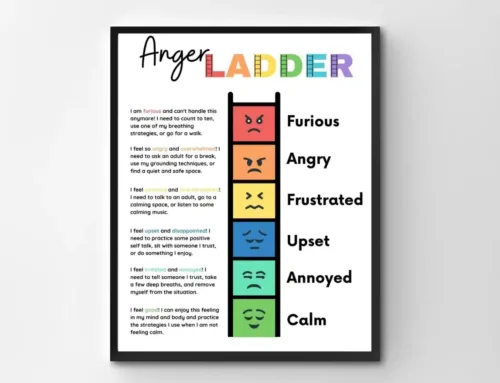Feeling angry does not make you a bad person. It means your system is under load. This guide shows how to control anger in the moment, build daily habits that lower reactivity, and spot triggers before they peak. You will learn simple breathing, time outs, and thought reframes, plus when to seek an anger management service or program or group sessions if you need more support.
How do I control anger now?
Use box breathing, a short time out, and neutral thought reframes to control anger within two minutes.
When angry feelings surge, the body shifts into fight or flight. Heart rate climbs, muscles tense, and thinking narrows to what feels wrong. Box breathing interrupts that surge fast. Breathe deeply in a four by four pattern: inhale for 4 seconds, hold for 4, exhale for 4, hold for 4. Repeat eight rounds to reach the two minute target. Keep your jaw loose, shoulders down, and eyes steady on a fixed point.
This simple routine lowers tension, slows heart rate, and gives your brain a chance to choose behaviour instead of reacting.
Secondly a short time out stops losing control from becoming a scene.
Say, “I need two minutes of quiet time to feel calmer,” then step away to a neutral space. Reset posture by standing tall or sitting upright, take two slow deep breaths, and return when speech feels steady. Replace hostile thoughts with neutral lines that promote control. Try, “This is hard and I can handle it,” or “In the grand scheme I can pick one step,” or “I can speak in a respectful tone.”
If a moment turns heated, use a quick script that keeps focus on solutions. “Pause please. I want to deal with this well. I need two minutes. I will come back and we will talk about one issue at a time.” These steps are the foundation of practical anger management and help you act in a healthy way even when you feel angry.
What daily habits lower anger?
Sleep well, move often, and practise brief mindfulness to reduce reactivity and lift tolerance.
Aim for 7 to 9 hours of sleep most nights and cut caffeine after midday. Good sleep lowers baseline stress, steadies mood, and helps you cope with frustrating situations. Reduce alcohol on weeknights because it disrupts sleep depth and can worsen morning irritability. Move your body every week with 150 minutes of moderate exercise or 75 minutes of vigorous exercise, plus two strength sessions. A brisk walk for 10 minutes during a tense day helps anger make less noise in your mind and body.
Practise five minutes of mindfulness daily to improve attention and reduce rumination. Count each breath from one to ten and begin again. Pair this with two litres of water daily if medically appropriate. Use three deep breaths before calls or the daily commute.
If you are new to practice, start with mindfulness for simple guidance.
How do I spot my anger triggers?
Track patterns in a simple log and plan for high risk moments before they arrive.
After an episode, note the time, place, people, and what was said. Record your thoughts, physical warning signs such as a clenched jaw, hot face, or racing heart, and the intensity from 1 to 10. Finish with the outcome. Over a week you will see patterns. Common triggers include traffic, loud noise, hunger, alcohol, sarcasm, and last minute changes. Body cues like shaky hands or dry mouth often come before words you regret.
With patterns clear, set plans that take pressure out of your day. Leave five minutes early, pack a snack, or schedule one quiet time block between meetings. Use a breath reset before known friction points. For a wider toolkit, work through Stress Management Techniques and apply two or three ideas this week.
Do I have an anger problem?
Check frequency, intensity, harm, and loss of control to decide if anger has become problem anger.
Ask yourself if outbursts occur weekly or more, if you regret what you said, and if you feel shame after the event. Notice if you damage property, throw things, or resort to threats. Consider how episodes affect relationships, work, and children. One example might be a raised voice at home that leads to two days of silence and missed family events. Another is a pattern of angry texts that undermine trust. If you are unsure, a short read on Anger and Frustration can help you compare your experience before you speak with a GP or counsellor.
When should I seek professional help?
Seek help when safety, health, or relationships are at risk or when self help tools are not enough.
Cognitive behavioural therapy teaches practical skills over six to ten sessions. You learn to challenge hot thoughts, practise planned exposure to triggers, and build problem solving routines that lower risk. Group anger management classes add accountability and a sense of shared effort. Group sessions also let you role play difficult conversations and get feedback in a safe setting. If conflict repeats at home, couples sessions help you agree on time out rules, repair routines, and respectful language that keeps both people safe. If you need tailored support, reach out to Energetics Institute through Contact and request the next available appointment.
What is anger?
Anger is a healthy emotion that signals threat or frustration and prepares the body to act.
Anger is not the enemy. It is data about needs, limits, and fairness. The body shifts quickly when anger rises. Heart rate climbs, breathing speeds, and adrenaline primes your muscles. That surge can protect boundaries when you express anger in a healthy way. Assertive language names behaviour, impact, and a clear request. Aggressive behaviour pushes or punishes and can hurt people and lives. Passive patterns hide needs until pressure bursts.
Explore real world examples inside Anger Management Articles to see how people move from impulse to choice.
Why do people get angry?
Stress load, unmet needs, past trauma, and rigid beliefs drive anger for many people.
High stress with low recovery shortens the fuse. Long hours, poor sleep, and skipped meals keep the system on edge. Rigid beliefs intensify reactions. Words like must, should, always, and never fuel all or nothing thinking. “People must respect me” or “Kids should obey instantly” leave no room for context. Past events also shape present reactions. Families may model shouting or avoidance. Trauma can prime strong responses to similar cues. If stress is a theme, start with How to Manage Stress and pick one change to test this week.
What early signs show build up?
Notice physical, emotional, and behavioural cues before anger peaks.
Physical warning signs include a clenched jaw, hot face, tight chest, and rapid heart rate. Emotional cues include irritation, resentment, shame, fear, and sadness. Behavioural cues include interrupting, swearing, pacing, and sarcasm. When you catch early signs, you can breathe deeply, lower tension, and speak instead of shout.
To pair breath work with body awareness, read The Role of Breath in Healing and try one exercise today.
What stages explain an anger episode?
Trigger, build up, peak, and aftermath describe the flow and show where to intervene.
A driver cuts in during the daily commute. Your heart rate spikes, thoughts harden, and you feel wronged. You yell, and the episode peaks. Aftermath brings regret, low mood, and distance at home. Intervening at build up changes everything. Breathe deeply for two minutes, avoid sarcasm, and focus on one point. If you go too far, repair the aftermath. Apologise for behaviour, not for feeling angry. Ask what helps repair trust and set one action for next time.
How do I change unhelpful thoughts?
Challenge assumptions and all or nothing beliefs to reduce spikes.
Hot words like always, never, must, and should predict blow ups. Replace them with flexible statements. “Sometimes meetings run late, and I can ask for an updated finish time.” Swap mind reading for testable statements. “I will ask for clarity about the deadline,” works better than guessing.
For a structured method, see What Is Cognitive Behavioural Therapy (CBT) and practise one reframe daily.
How do I solve problems without flare ups?
Define the issue, choose one step, and review the result within 24 hours.
Write a clear statement that avoids blame. “Mornings run late three days a week,” is precise and useful. List three options, pick one, and act within 24 hours. For example, pack bags at night, set a 7.15 alarm, or prepare breakfast in advance. Record the result, keep what worked, and adjust the next step. Problem solving prevents the same trigger from tripping you again.
How do I communicate without escalation?
Use a calm tone, I statements, and one issue per talk to protect relationships.
Speak in a slow, steady voice and focus on behaviour. Model an I statement that includes behaviour, impact, and request. “When meetings start late, I feel stressed because I have back to back calls. I need us to start on time or shorten the agenda.” Coach reflective listening to keep talks honest. “What I hear is that you want clearer deadlines. Is that right” Schedule hard talks and cap them at 20 minutes.
If tension rises, pause and return later. For step by step guidance, see Resolve Conflict with Better Communication.
Where do I direct anger energy safely?
Use exercise, creative work, or practical tasks to discharge energy in a healthy way.
Body movement shifts chemistry fast. Take a brisk walk, climb stairs, or shadow box for ten minutes. Stretch afterwards to release tension. Creative outlets help too. Write three lines about what happened, play one song that changes your state, or sketch how you feel. Finish with a simple task like doing the dishes or tidying one shelf.
Closing a small loop restores a sense of control and helps you feel calmer. For more options, try Meditation and Mindfulness Strategies.
How do I remove common triggers?
Adjust routines and plan resets before friction points to prevent spikes.
Plan buffers for traffic, meetings, and school pick ups. Leave ten minutes early for peak routes, and take five slow breaths before back to back calls. Eat regular meals to avoid blood sugar dips. Pack snacks such as nuts, fruit, or yoghurt.
Keep devices out of the bedroom and read for ten minutes before sleep. If sleep is a weak point, start with Time, Sleep Deficits and Their Impact on Mental Health and adjust one habit tonight.
Which tools support self management?
Use workbooks, apps, and printable logs to keep skills on track.
Create a two column sheet each week. Column one records triggers. Column two records what worked. Review every Sunday. Set phone reminders for breath breaks at 10 am and 3 pm and pair them with a glass of water. Choose one app that guides box breathing and lets you log mood. Export a weekly summary for therapy if you attend.
Browse Books for curated resources that support practice.
Which therapy options help with anger?
Choose CBT, group programs, or couples sessions within a structured anger management program.
CBT builds thought skills, communication, and behaviour change that lasts. Group anger management classes add role play, peer support, and a sense of progress together. Couples sessions reduce escalation at home and build faster repair after arguments.
To compare options or book a consult, read Counselling Services.
Is anger a mental health condition?
Anger is not a diagnosis, yet it can co occur with other conditions that need care.
Anxiety, depression, PTSD, and substance abuse can intensify reactivity. Alcohol and drugs lower control and increase risk. Ask a GP to check for medical contributors such as sleep apnoea or thyroid issues. Medication effects can influence mood and blood pressure as well.
If anxiety symptoms are present, start here: What Is Anxiety. Integrated care that combines counselling, medical support, sleep goals, and exercise works best.
How does uncontrolled anger affect health?
Uncontrolled anger raises risks for high blood pressure, heart strain, poor sleep, conflict, and legal or workplace problems.
Each outburst can spike blood pressure and load the cardiovascular system. Over time, repeated surges increase risk for heart strain. Sleep suffers after conflict because the mind churns. Fatigue lowers coping the next day and can feed depression. At work, repeated outbursts damage trust and performance. In some cases, aggression brings warnings, fines, or charges. To understand the stress pathway, read How Prolonged Stress Creates Illness.
How do I prevent future outbursts?
Lower load, improve recovery, and use quick resets to stay in control.
Book two 45 minute exercise blocks and one social rest each week. Plan a relaxed catch up that gives you good laughs and perspective. Keep one night device free to improve sleep. Use micro resets across the day. Take five slow breaths before calls, stretch your shoulders every hour, and step outside for two minutes of fresh air. Set boundaries around non essential tasks. Say no clearly when capacity is full, delegate small jobs, and protect your sleep and meals first. If anxiety fuels reactivity, use Anxiety Management Strategies to build a weekly plan.
Where can I get support in Australia?
Use national services for information and programs when you need extra help. Start with Healthdirect for reliable facts and service finders. Contact MensLine Australia for phone and online support that respects your privacy. Use Beyond Blue and Head to Health to access programs, referrals, and self paced tools. If you live in Western Australia, Energetics Institute is here to help as well, directions and hours are listed at Perth Location.
What quick answers help right now?
Read these fast answers if you need help in the next five minutes.
What is anger management
Anger management is a set of skills that help you identify triggers, control reactions, and express needs in a safe and healthy way. Practise two minutes of box breathing, use an I statement to make a request, and take a time out if you need to reset. For quick wins, see 10 Anger Management Tips.
Why do I get angry so easily
High stress, poor sleep, and rigid beliefs lower tolerance and make outbursts more likely. Keep a one week log, adjust sleep and meals, and practise three one minute breath breaks daily.
What techniques work best
Deep breathing, time outs, thought reframes, and regular exercise work best when you practise them daily. Train one minute three times a day, use the same calm script, and review progress every Sunday.
Can anger issues be cured
Anger cannot be cured, yet it can be managed with consistent practice and support. Many people build control in six to ten weeks with a structured plan and maintain gains with habits and occasional check ins.
Conclusion
Anger is a normal signal, not a personal flaw. What matters is what you do next. Use a two minute reset when heat rises, take a short time out, and speak with one clear request. Build a daily base with sleep, movement, brief mindfulness, and simple boundaries so your system runs with less load. Track triggers in a one week log, notice early body cues, and step in before the peak. When you slip, repair fast with an honest apology and a concrete plan for next time.
If outbursts are weekly, harm is occurring, or self help stalls, add structured support. A short block of CBT, a focused group, or couples sessions can speed progress and protect your health and relationships. Small skills, practised often, create the biggest change. Start today with one breath set, one planned pause, and one respectful line you will use the next time pressure builds.
Related Posts
Fees And Rebates
We offer cost-effective solutions that can fit within your budget. The insights and skills acquired in therapy can continue to positively impact mental and emotional health long after the therapy sessions have ended, making it a truly worthwhile investment in yourself.















